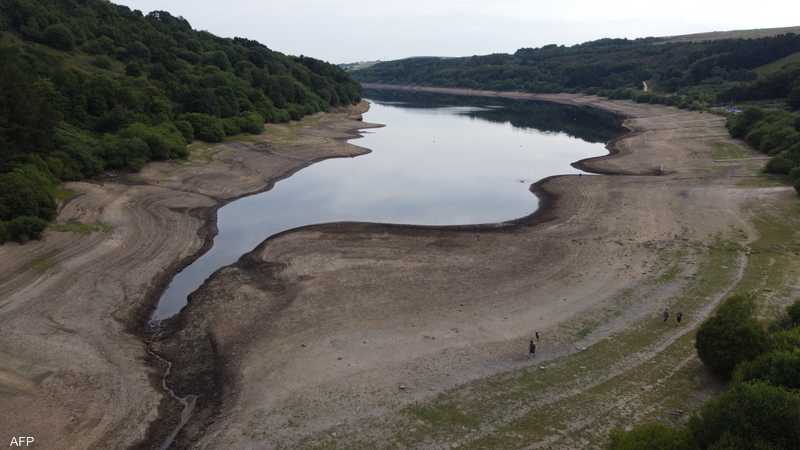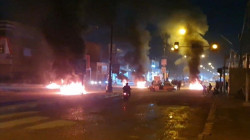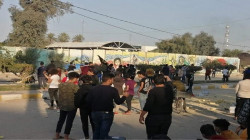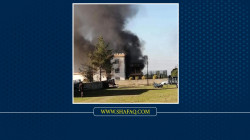Al-Diwaniyah faces dire consequences of prolonged drought

Shafaq News / Situated in the southern region of Iraq, the Al-Diwaniyah governorate is currently facing a dire situation characterized as "catastrophic." This is due to an ongoing drought that has drastically transformed what were once flourishing agricultural regions into desolate wastelands. Regrettably, the government's response to this crisis has proven inadequate, compelling the local population, particularly farmers, to abandon their orchards and seek refuge in other areas in order to secure their survival.
Traditionally renowned for its fertile terrain, the Al-Diwaniyah governorate holds a significant geographical presence along the banks of the Euphrates River. It encompasses expansive agricultural zones, teeming lakes, flourishing palm orchards, and unique marshlands, among other distinctive natural attributes.
However, the region has experienced a sharp decline in annual rainfall, with only 92.8 mm recorded in 2019 and subsequent years. As a result, farmers have suffered substantial losses. During the current year, the cultivated land area has shrunk by half, leading to significant financial hardships for numerous farmers, both within and outside the agricultural plan.
The scarcity of water resources has also prematurely ended the summer agricultural season for various strategic crops, including "Shilib" or amber rice, which covers an area of 158,000 dunams across all agricultural lands.
Hassan Matar Al-Waeli, the Director of Agriculture in the governorate, revealed that "76% of Al-Diwaniyah's population depends on agriculture, whether plant-based or animal-based. The governorate once boasted a substantial livestock population, including cows, sheep, and buffalo, with the latter being particularly well-known."
Migration of Farmers
Al-Waeli explained, "Due to the lack of water and green fodder for these animals, farmers have resorted to selling their livestock and subsequently migrating to areas with adequate water resources."
As of mid-March, a recent report by the International Organization for Migration (IOM) indicated that "12,212 families (73,272 individuals) were displaced due to drought in ten Iraqi governorates in central and southern Iraq." Among the most severely affected governorates are Thi Qar, Maysan, and Al-Diwaniyah, with 76% of displaced families relocating to urban areas.
Crisis Situation
Al-Waeli emphasized that "the measures taken by the federal government have been insufficient to address the crisis facing agriculture and livestock. The decreasing livestock numbers have led to rising meat prices, both for red and white meat, as well as fish due to the drying up of lakes."
He further elaborated, stating that "the price per kilogram of sheep has surged to 18,000 Iraqi dinars, compared to the previous 13,000 dinars, while the price of a kilogram of cow meat has increased from 8,000-9,000 dinars to 15,000 dinars."
Second Poorest Governorate
Al-Waeli pointed out that "Al-Diwaniyah was already considered one of the poorest governorates even before the deterioration of the agricultural situation. So, the current situation, exacerbated by the drought and livestock decline, has compelled the governorate's residents to migrate."
The prolonged drought and declining agricultural activity have pushed poverty rates to record levels across all governorates. In Al-Diwaniyah, poverty rates have reached 47%, making it the second poorest governorate after Al-Muthanna, despite its previous status as one of the wealthiest due to its thriving agriculture and industry.
Notably, Al-Diwaniyah lacks petrodollar projects, tourist attractions, or religious sites, with the agricultural sector being the only neglected resource in the governorate.
Furthermore, Iraq is among the five countries most severely affected by climate change, according to the United Nations. Iraq has also expressed concern over dams constructed by neighboring Turkey and Iran, which have significantly reduced the flow of rivers into its territory.





